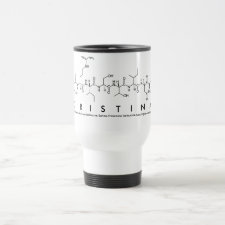
Authors: Baggiani C, Giovannoli C
Publication date: 2005
Chapter title: Molecular Imprinted Solid-Phase Extraction for Cleanup of Chlorinated Phenoxyacids From Aqueous Samples.
Page numbers: 421-433.
DOI: 10.1385/1-59259-929-X:421
Book title: Pesticide Protocols
Editors: Vidal JLM, Frenich AG
Publisher: Springer
Series title: Methods in Biotechnology
Volume number: 19
Abstract: Solid-phase extraction (SPE) represents a suitable way to clean up and preconcentrate samples containing traces of chlorinated phenoxyacids. High selectivity levels may be obtained using columns packed with materials based on well-defined molecular recognition mechanisms, such as immunoaffinity columns. SPE procedures involving molecular imprinted polymers (MISPE, molecular imprinted solid-phase extraction) have been proposed as a valid substitute for immunoaffinity procedures because of their simplicity of preparation and high stability to extreme chemical conditions. Here, we describe the preparation and the use of a polymer obtained by imprinting with the herbicide 2,4,5-trichlorophenoxyacetic acid as a molecular imprinted SPE sorbent. The polymer will be useful for extracting and concentrating selectively several strictly related phenoxyacids (2,4,5-trichlorophenoxyacetic acid; 2,4-dichlorophenoxyacetic acid; (R,S)-2-(2,4,5- trichlorophenoxy)-propionic acid; (R,S)-2-(2,4-dichlorophenoxy)-propionic acid; 2-methyl- 4-chlorophenoxyacetic acid; and (R,S)-2-(2-methyl-4-chlorophenoxy)-propionic acid) from water samples before performing the analysis by capillary electrophoresis or high-performance liquid chromatography.
Template and target information: 2,4,5-trichlorophenoxyacetic acid
Author keywords: cleanup, 2,4-D, dichlorprop, fenoprop, halogenated phenoxyacids, herbicides, MCPA, mecoprop, molecular imprinting, molecular recognition, preconcentration, Solid-phase extraction, 2,4,5-T



Join the Society for Molecular Imprinting

New items RSS feed
Sign-up for e-mail updates:
Choose between receiving an occasional newsletter or more frequent e-mail alerts.
Click here to go to the sign-up page.
Is your name elemental or peptidic? Enter your name and find out by clicking either of the buttons below!
Other products you may like:
 MIPdatabase
MIPdatabase









